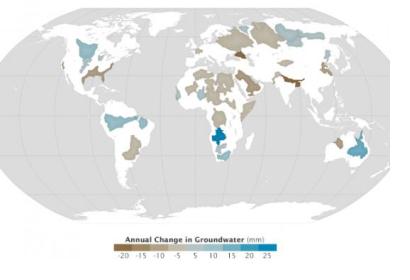A recent study partly based on data from the Gravity Recovery and Climate Experiment (GRACE) has highlighted the risk of using groundwater basins for human consumption without a concrete knowledge about the remaining quantity of water.
The pair of satellites GRACE, that measures small changes in mass and gravity near Earth’s surface, has allowed scientists to observe water mass and its gravitational tug. This way they were able to follow the movements of water around the planet.
Due to the impact that running out of supplies in the current primary source of freshwater for approximately two billion people could cause, the limited knowledge on the state of large groundwater systems becomes an important risk. The research team found that the quantity of freshwater in around one third of the aquifers in the world has been strongly reduced without any supplementary recharge. Climate change and population growth are two of the major reasons leading to this situation, and they are expected to further intensify the problem.
“Available physical and chemical measurements are simply insufficient. Given how quickly we are consuming the world's groundwater reserves, we need a coordinated global effort to determine how much is left,” said Jay Famiglietti, the senior water scientist at NASA’s Jet Propulsion Laboratory, UCI professor and principal investigator of the research.
The study, published in the Water Resources Research Journal, was conducted by scientists from the University of California, Irvine, NASA’s Jet Propulsion Laboratory, the National Center for Atmospheric Research, National Taiwan University, and the University of California, Santa Barbara.

